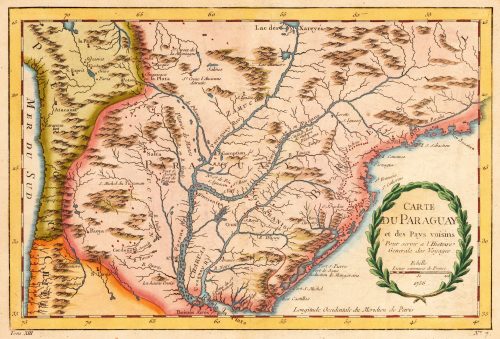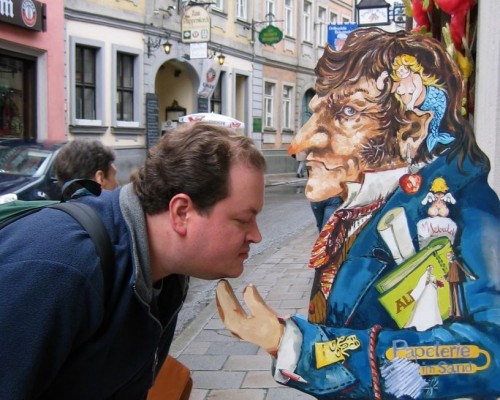Di Benedetto precisely evokes themes of alienation and absurdity through Zama’s futile supplications for promotion and the humiliations…. Evocative of history without being a historical novel, Zama shares in a rich tradition of existentialist fiction. — Frank Richardson
Zama
Antonio di Benedetto
Translated by Ester Allen
New York Review Books Classics, 2016
224 pg, $15.95
.
Adead monkey, drowned but undecomposed, washes against a pier where a man stands, alone, separated from his family by half a continent of jungle, desperate to escape, dreading the suspicion he will share the same fate as the corpse drifting in the water. And so we meet Don Diego de Zama, the eponymous antihero of Antonio Di Benedetto’s most celebrated novel. First published in Argentina more than sixty years ago, Zama—extolled by Julio Cortázar, Roberto Bolaño, and Juan José Saer—is now available for the first time in English courtesy of NYRB Classics and master translator Ester Allen.
Born in 1922 in Mendoza, Argentina, to parents of Italian descent, Antonio Di Benedetto studied law before turning to journalism. In 1953 his first short story collection, Mundo animal, was awarded a prize by the Sociedad Argentina de Escritores, juried in part by Jorge Luis Borges. His first novel, Zama, appeared in 1956 and was followed by the novels El silenciero (1964) and Los suicidas (1969; made into a film in 2005). A collection of his selected stories is forthcoming in English from Archipelago Books and a film adaptation of Zama is due out in 2017.
Antonio Di Benedetto traveled the world and lived a life as incredible as any fictional character, including, unfortunately, the horrors he suffered under the Videla dictatorship. For reasons unknown, he was imprisoned after the 1976 military coup d’état and held for eighteen months, during which time he was tortured and stood in front of a firing squad four times (a terrifying experience to have in common with Dostoyevsky, his literary role model). Ester Allen’s insightful preface includes the remarkable story of Di Benedetto’s release, in part due to efforts by Heinrich Böll and Ernesto Sábato. A testament to his spirit, Di Benedetto continued to write stories in prison, stories he published as the collection Absurdos in 1978 while living in exile in Spain. He wouldn’t return to Argentina until 1984 and died in 1986 in Buenos Aires.
Castaway
Don Diego de Zama, the protagonist-narrator of this first-person tale of existential descent, is a castaway in the midst of a crowd. Appointed by the Spanish Crown as a court councilor in the remote colonial outpost of Asunción, Paraguay, Zama’s greatest desire is escape—preferably by promotion. Zama reports to the provincial governor (Gobernador), but despite his high rank, the Gobernador treats him with disrespect since Zama is an americano, a criollo—of Spanish descent, but born in South America—unlike the other Spanish-born officers living in the small community. Ironically, the fact that Zama works for the Spanish government alienates him from the americanos. Isolated from his family, isolated within his own community by prejudice, and given his own admitted “nonexistent capacity for making friends,” his hope for escape becomes for him a “long soliloquy,” a record of his frustration and fear and anger and pain as the years tick by and he falls farther and farther away from his expectations and dreams. He sums up his situation:
Here I was, in the midst of a vast continent that was invisible to me though I felt it all around, a desolate paradise, far too immense for my legs. America existed for no one if not for me, but it existed only in my needs, my desires, and my fears.
Di Benedetto precisely evokes themes of alienation and absurdity through Zama’s futile supplications for promotion and the humiliations he endures at his bureaucratic job—themes similarly explored by Kafka, to whom Di Benedetto is frequently compared. Called to the Gobernador’s office, Zama is “condemned” to wait in the antechamber, “writhing with impotence,” “humiliated” at being of “apparent equality of status” with a group of locals waiting for an audience with the governor. The irony of the situation becomes clear when the Gobernador tells Zama that he has summoned him to deal with the troublesome old man and young woman with whom he has been waiting. When told, he storms out past the petitioners and into his own office where he broods:
First they would have to grow weary of waiting for their audience with the governor. They would bestir themselves and approach the secretary, only to be informed that it was the learned councillor they should see. Then they would wait another long while before they were received at last and came to the realization that the learned councillor was none other than myself, that is, the very man in whose presence they had already wasted an irrecoverable half hour.
Zama will reap what he sows, for he too will “grow weary of waiting,” he too will “bestir” himself (and to the point of madness), he too will dwell on “irrecoverable” time. The 198-page novel comprises 50 numbered chapters distributed in a 3:2:1 ratio across three sections labeled by date: 1790, 1794, and 1799. These sections represent discrete states of mind for Zama and the dwindling ratio mimics Zama’s psychological dissolution as he spirals toward destruction.
Terribly alone, Zama’s only preoccupation besides leaving is sex. The 1790 period of the narrative is dominated by his almost hysterical lasciviousness for any woman, and his pursuit of conjugal relations is simultaneously pathetic and comical. Zama does miss his wife, but he also convinces himself that “No man . . . disdains the prospect of illicit love.” His primary would-be paramour, Luciana (the wife of a colleague), when she realizes his interest in her, strings him along, teasing him with promises, then kisses, then the hope of a midnight assignation. She deliberately fuels Zama’s expectations with no intention of ever consenting to his desires. When Luciana won’t have him, he tries Rita, the daughter of his host, despite a growing paranoia that people are laughing at him behind his back over his overt concupiscence. One night, in passing a random woman in the street, he is convinced she’s attracted to him and follows her home. A comically absurd moment ensues when the woman’s dogs emerge to defend her and Zama, believing himself her deliverer, attacks them with his sword in a seizure of quixotic lunacy.
Zama’s conflicts drive him to constant contradiction. The episode of anger at work distracts him from the aid he promised an injured native woman. When he learns that the help he finally sends is in vain, he feels “so disoriented that my unease and remorse were visible, my guilt at neglecting a human being . . . .” He sees himself as a faithful husband, yet behaves lecherously. He sees himself as a good Samaritan, yet neglects the ones he would help. He sees himself as dignified, but behaves pettily. While we can assume he began his exile with some of the character traits that define him, his isolation exacerbates some and creates others and all are amplified as months turn to years. Don Diego de Zama is no hero, but he is a complex, vibrant character through which Di Benedetto ingeniously illustrates the contradictions and flaws that make us human.
 Nicolaus Bellin, Carte du Paraguay et des Pays voisins Pour servir a l’Historie Generale des Voyages, 1760
Nicolaus Bellin, Carte du Paraguay et des Pays voisins Pour servir a l’Historie Generale des Voyages, 1760
Descent
By the end of the first part, almost all of the people Zama knows have left Asunción. Four years pass and 1794 opens with Zama in the same town with the same job, but living with a Spanish widow, Emilia, with whom he has a son, born “sickly.” But Don Diego has only changed for the worse, and his namesake becomes symbolic as neglect reduces him to an animal-like state:
Propelled by his knees and his filthy little hands, the child moved about on the dirt floor. With no one to clean them, his nostrils dripped, and the two streams of snot had reached the upper lip . . . The little one rubbed his face, smearing the snot around with a dirty hand . . . His viscous little fingers then dug back into the dirt, which made a revolting mud. . . .
My son. On all fours and so filthy that in the twilight he was indistinguishable from the earth itself: a kind of camouflage. At least—like an animal—he had that defense.
When Zama’s wages are overdue from Spain he must sell almost everything including his sword. He soon abandons Emilia and his son and moves to the cheapest lodgings he can find where he exists in the fog of his own expectations; thinking only of the future, the present decays into hallucination. Neurotic and at times feverish, he is alternately lucid and confused, lost in fantasy. Zama’s oneiric narration during this period is similar (though not nearly as stream of consciousness in style) to the surreal “Report on the Blind” section of Ernesto Sábato’s 1961 novel On Heroes and Tombs. Sábato’s character Fernando, obsessed with a conspiracy of the blind, plunges into the depths of his unconscious, metaphorically represented by the sewers of Buenos Aires; Di Benedetto’s Zama, plagued by an interminable isolation created by forces both without and within, loses himself in fantasies of women. The internal forces prove most destructive, a fact Zama will eventually realize when he reflects that “the search for freedom . . . is not out there but within each one” (Di Benedetto’s italics). In an essay on Sábato’s novel, William H. Gass wrote that Sábato “believes deeply in the reality of evil, in the hell that each man is . . . whereas for the kingdom of heaven, or the reality of the good, he has only hope.” In his isolation, Zama creates his own hell and the possibility of a heavenly future remains only a hope.
Leaves of Existentialism
Zama shares many of the themes associated with existentialism, including, but not limited to estrangement, anxiety, despair, and the absurd. His alienation from family, colleagues, and community is self-evident, and although Zama’s “soliloquy” gives the reader a sense of his anxiety and despair, Di Benedetto doesn’t rely on Zama’s exposition alone. In his afterword to Di Benedetto’s Animal World, Jorge García-Gómez notes the parallels between Di Benedetto’s fiction and Kafka’s in their use of animal imagery to elucidate a character’s existential state. For example, while Zama contemplates the drowned monkey—a striking image itself—a fellow officer joins him on the pier and tells him of a fish that “the river spurns, and the fish . . . must wage continual battle against the ebb and flow that seek to cast it upon dry land.” Disturbed by his colleague’s story, Zama walks into the jungle where, minutes prior to spying on a group of bathing women, he imagines a puma and reflects “on games that were terrible or that could turn terrible.” In another example, while adjudicating the case of a murderer, Zama discovers the man believed he had grown a bat wing and in a frantic attempt to cut it off, had, in reality, stabbed his wife to death.
And, there are insects.
Zama the predator (puma) becomes symbolic prey when Luciana tells him of the pompilid wasp nest she found in her room; female pompilids prey on spiders, paralyzing them with venom so that the wasp’s young, when they hatch, will have something fresh to eat.
Another layer of Di Benedetto’s representation of Zama’s psyche is his prose style. Allen wrote that that recreating Di Benedetto’s prose was a great challenge, that the style of Zama is “sui generis: choppy, oblique, veering and jolting from sentence to sentence, often rather opaque, a bit mad.” All the more perfect for this novel, for capturing the nature of this character’s consciousness. For Zama is oblique, he does veer from thought to thought, from plan to plan, and he is certainly more than a bit mad.
When his psychological state is most strained, sentences are separated by line breaks as if to punctuate the manner in which Zama experiences his world—through curt, dour moments, isolated inside his own mind:
I slept very late.
I did not leave the room until I sensed an absence of light outside.
I perceived the moon, like a woman seated on the horizon, naked and fat.
I went to the rear yards.
I searched for something to chew on in the kitchen garden but it was much neglected and had no fruit trees.
I drank maté in the kitchen.
I was not thinking of the dead girl. By now she was far away. I remembered the blond boy. He had reappeared now, with four years gone by, under incomprehensible circumstances. I did not devote much thought to him. . . .
I was isolated, besieged, defenseless.
In the final part, 1799, Zama joins a company of soldiers sent to apprehend a local bandit, Vicuña Porto, and as the company rides deeper into a heart-of-darkness jungle, the prose becomes even terser:
The wind would topple the cross. Later, someone would carry off the stone.
Bare earth.
No one.
Nothing.
I shuddered, without moving.
This could not be. This could not be for me.
I must go back, expose myself to this no further.
Give up the search.
With all the white space on the page and the pauses between lines, you can almost hear Zama taking deep breaths between each thought.
In style, Zama is similar to Camus’s L’Étranger. Camus’s novel also features a disturbed first-person narrator, and although Meursault and Zama have different stories, characters, and motivations, nevertheless they assume a similarly abrupt tone, and what both characters do not say often echoes as loudly as what they do.
§
Evocative of history without being a historical novel, Zama shares in a rich tradition of existentialist fiction. For much of his life Antonio Di Benedetto lived in Mendoza, a self-imposed outsider apart from the literary scene of Buenos Aires. Through Zama he gives us a glimpse into the human condition that is alienated, absurd, comical, desperate, afraid, and yet, hopeful. Zama’s life is one of unfulfilled expectations, one of waiting, reflected in Di Benedetto’s epigraph: “A las víctimas de la espera / To the victims of expectation.” At the end, during a moment of clarity, Zama thinks:
. . . that uncertain though I was as to our goal, I became possessed of the certainty that my fate would be the same anywhere.
I asked myself not why I was alive but why I had lived. Out of expectation, I supposed, and wondered whether I still expected anything. It seemed I did.
Something more is always expected.
Something more is always expected. But isn’t this one of our greatest strengths? Unfulfilled hope is not hope in vain. One thing is certain, we can be grateful that Antonio Di Benedetto’s novel will now reach generations of new and eager readers all replete with their own great expectations.
— Frank Richardson
N5
Frank Richardson lives in Houston and received his MFA in Fiction from Vermont College of Fine Arts. His poetry has appeared in Black Heart Magazine, The Montucky Review, and Do Not Look At The Sun.
.
.



